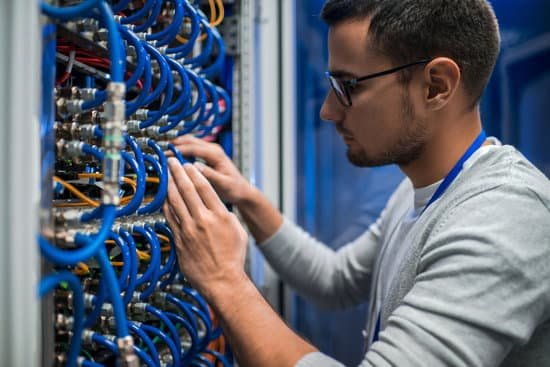Do I need to restart Ubuntu? You must reboot your Linux box when your install a new kernel or update critical libraries such as libc. Both Debian and Ubuntu Linux can tell you if the system needs a reboot when you login to your box as root user.
What is var run reboot required? The /run/reboot-required mechanism is used when a reboot is needed to fully apply the changes introduced by package installation or upgrade. Typically it is the postinst maintainer script that touches /run/reboot-required , at the end of a successful configuration of the package.
How do I restart Ubuntu? Restart Ubuntu Linux immediately
By default, if you just use shutdown -r, it will reboot your system after one minute.
How often should you restart Ubuntu? You need to restart it if you replace hardware. Software updates can be incorporated while the machine is running. Otherwise there is no need to restart the machine. I generally end up restarting my Linux computers every 4–5 years if I had to put a number on it.
Do I need to restart Ubuntu? – Additional Questions
How long can Linux run without restarting?
10 Answers. Working as a system administrator, I see Linux servers up for over 700-800 days without reboot, so there are no uptime limitations; the errors you got are not related to Linux (the kernel) itself. A lot of services can be restarted and most errors can be solved on production systems.
How do I know if Linux needs reboot?
The system needs a reboot if the file /var/run/reboot-required exists and can be checked as follows:
- #!/bin/bash if [ -f /var/run/reboot-required ]; then echo ‘reboot required’ fi.
- sudo apt install needrestart.
- sudo needrestart -r i.
- sudo zypper ps.
How often should I restart my server?
We recommend doing a reboot at least once per month. The Dedicated Hosting Servers are just computers, you would not leave your computer on for months straight without a single reboot, so the same rules apply for servers.
Why does Ubuntu restart after update?
Ubuntu will suggest a restart after the update if it can’t restart the affected components in a meaningful way. In a nutshell: Things like editors or command line tools don’t need any kind of restart, they just get replaced. Services like a web server might need to be restarted by itself.
Why do we need to reboot the server?
If you have an operational error, restarting or rebooting a server might solve the problem. Restarting a server closes all the processes that are running and starts them again. Rebooting a server closes all running processes and reboots the server.
Do you need to reboot Linux after update?
You dont ‘have’ to restart, but the only time you have to restart for changes to take effect are kernel upgrades and proprietary driver upgrades. Actually, there are a few other updates that ask you to restart, although in some cases logging out might be sufficient.
Why does Linux not need to restart?
The difference with Linux is the different architecture. While Windows locks its important files, Linux doesn’t and the files could be updated or deleted in an easier way than Windows. For this reason, Linux asks the user to reboot only few times.
Why does Linux not need to reboot?
The major reason for this behavior is that Linux doesn’t lock executed files and libraries, which allows direct replacement of those files and does only require the applications to restart.
Should you reboot after a kernel update?
Yes, to use an kernel update, you usually need to reboot the system.
Does yum update require reboot?
If you install the yum-utils package, you can use a command called needs-restarting . You can use it both for checking if a full reboot is required because of kernel or core libraries updates (using the -r option), or what services need to be restarted (using the -s option.
What does sudo reboot do?
sudo shutdown -r now This will perform a system shutdown in a proper way and then reboot the computer. sudo shutdown -h now This will perform a system shutdown in a proper way. You can also specify a timer (in seconds), instead of the word “now”, for example: shutdown -h -t 30.
Does Microcode_ctl require reboot?
Description. The microcode update is volatile and needs to be uploaded on each system boot i.e. it doesn’t reflash your cpu permanently, reboot and it reverts back to the old microcode.
How do I reboot Linux?
Linux system restart
To reboot the Linux system from a terminal session, sign in or “su”/”sudo” to the “root” account. Then type “ sudo reboot ” to reboot the box. Wait for some time and the Linux server will reboot itself.
What is the reboot command?
To shut down your computer, type shutdown /s. To restart your computer, type shutdown /r.
What does reboot system mean?
Rebooting is the same as restarting, and close enough to powering off and then turning off your device. The purpose is to close and reopen the operating system. Resetting, on the other hand, means taking the device back to the state in which it left the factory. Resetting wipes all your personal data.
What is the difference between a reboot and a restart?
When you select the restart option in your PC, it means you are asking your operating system to restart all the applications which are running on it, while the reboot means when you press the Button which is forcefully restarting the operating system.
Is reboot and restart the same thing?
Restart Means to Turn Something Off
Reboot, restart, power cycle, and soft reset all mean the same thing.
